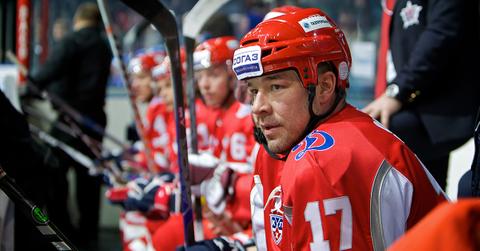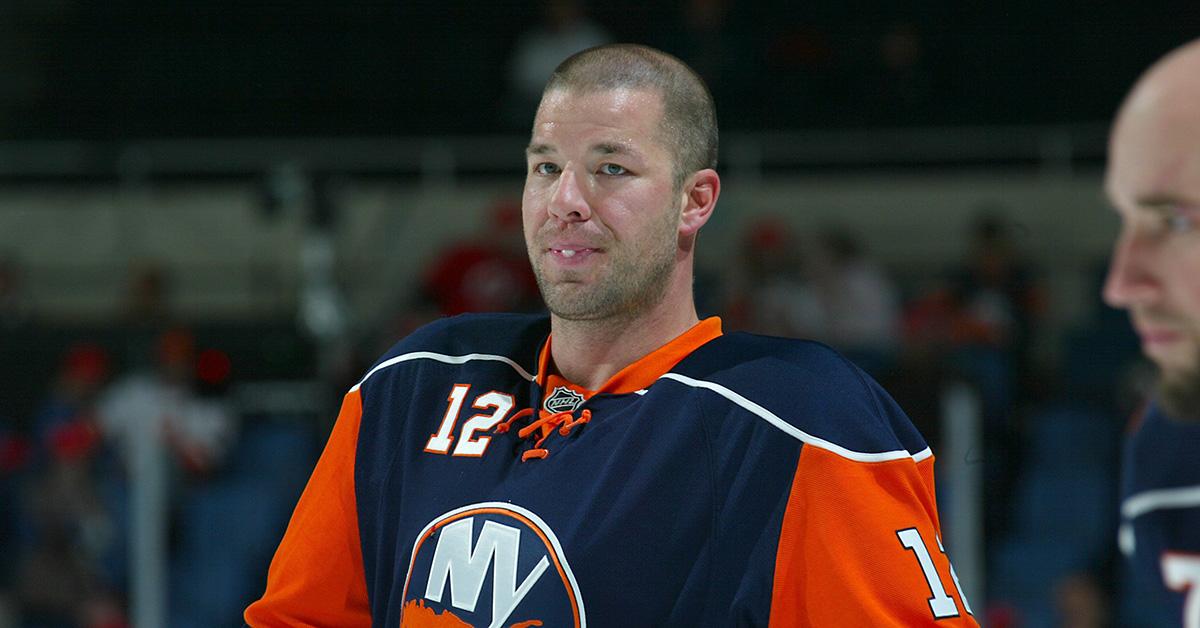Former NHL Player Chris Simon's Is Dead at 52, and His Family Is Blaming CTE
Chris Simon played in the NHL for more than 20 years, and was part of one team that won the Stanley Cup.
Published March 20 2024, 9:52 a.m. ET

Former NHL wing Chris Simon is dead at 52. His family confirmed the news on March 19, 2024, and went on to say that his career as a professional athlete played a direct role in his ultimate death.
Following the news of his death, many wanted to better understand was Chris's family was referring to, and what his actual cause of death was. Here's everything we know about Chris's death, and about the circumstances around it.

What was Chris Simon's cause of death?
Chris Simon took his own life, but his family strongly believes that he was suffering from brain trauma.
“The family strongly believes and witnessed first-hand, that Chris struggled immensely from CTE (chronic traumatic encephalopathy) which unfortunately resulted in his death,” a statement from the family explained.
CTE is a condition caused by repeated head injury, and it can only be diagnosed via a post-mortem autopsy of the brain.
“We are grieving with the loss of our son, brother, father, partner, teammate and friend," the statement continued. "The entire Wawa community is sharing in our grief. We will not be releasing any further details at this time and ask for privacy during this very difficult time. We appreciate everyone who shares in our tragic loss.”
Chris had a long career in hockey.
Chris played for seven different NHL franchises from 1992 to 2013, and also played in the KHL, which is based largely in Russia. He was part of the 1995-1996 Colorado Avalanche team that led the franchise to its first Stanley Cup title.
Chris was married twice and had five children. In 2017, despite his long hockey career, he filed for bankruptcy, claiming that he couldn't work because of symptoms of CTE.
A doctor confirmed that Chris suffered from anxiety and depression, two well-known symptoms of CTE. Hockey is one of several sports where CTE is a major risk that athletes have to face. Other sports associated with CTE include football, boxing, and rugby.